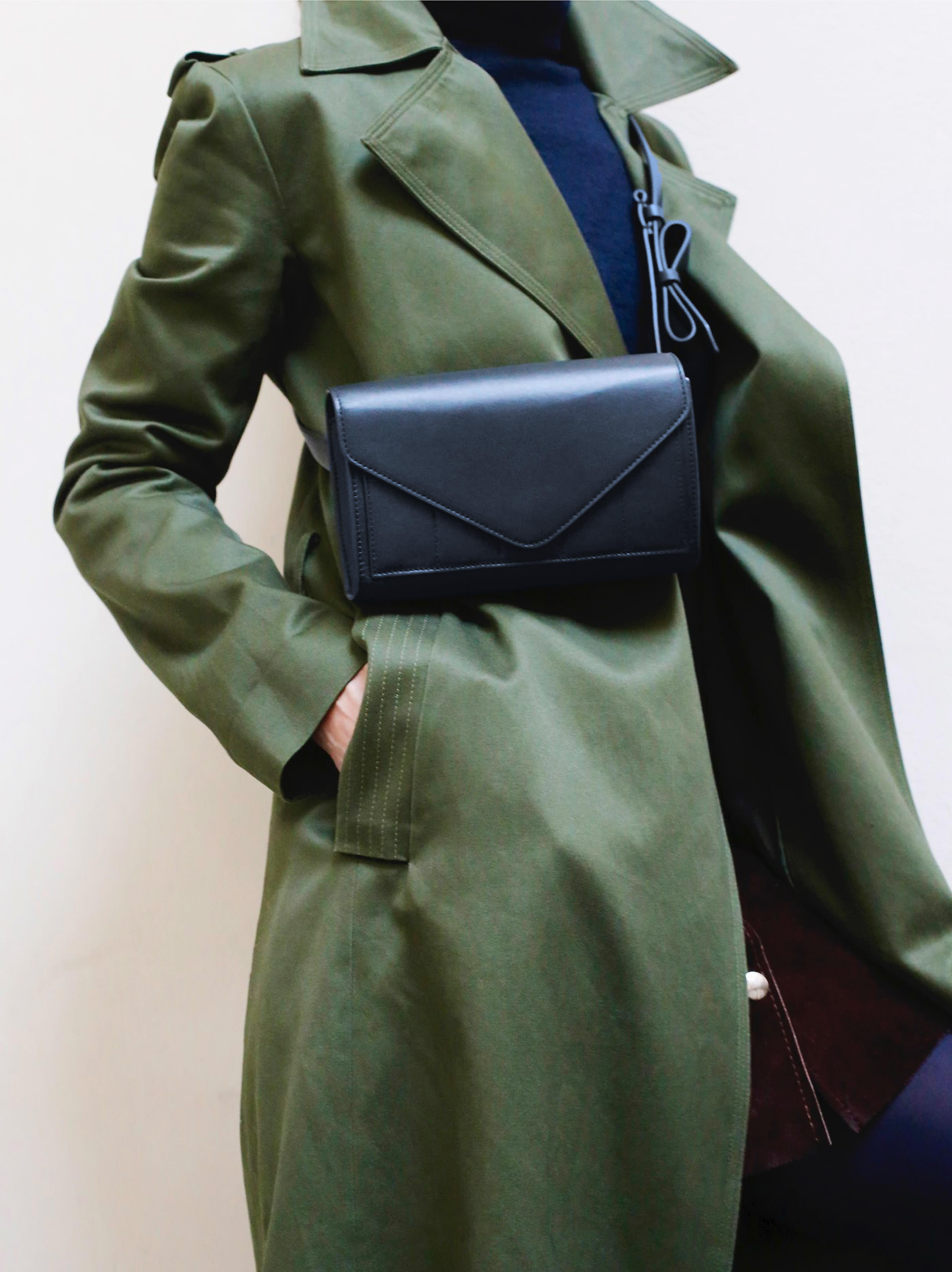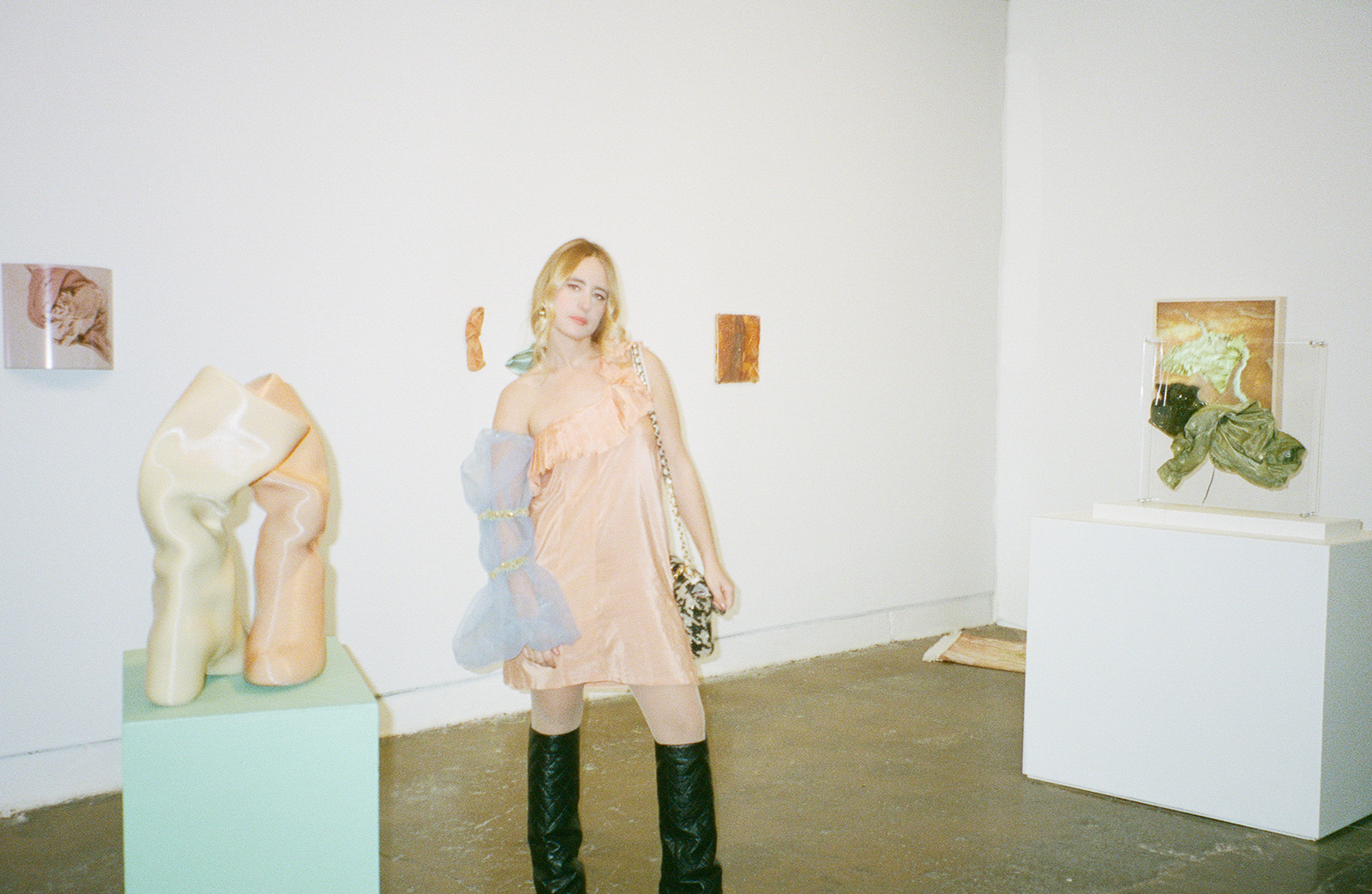-
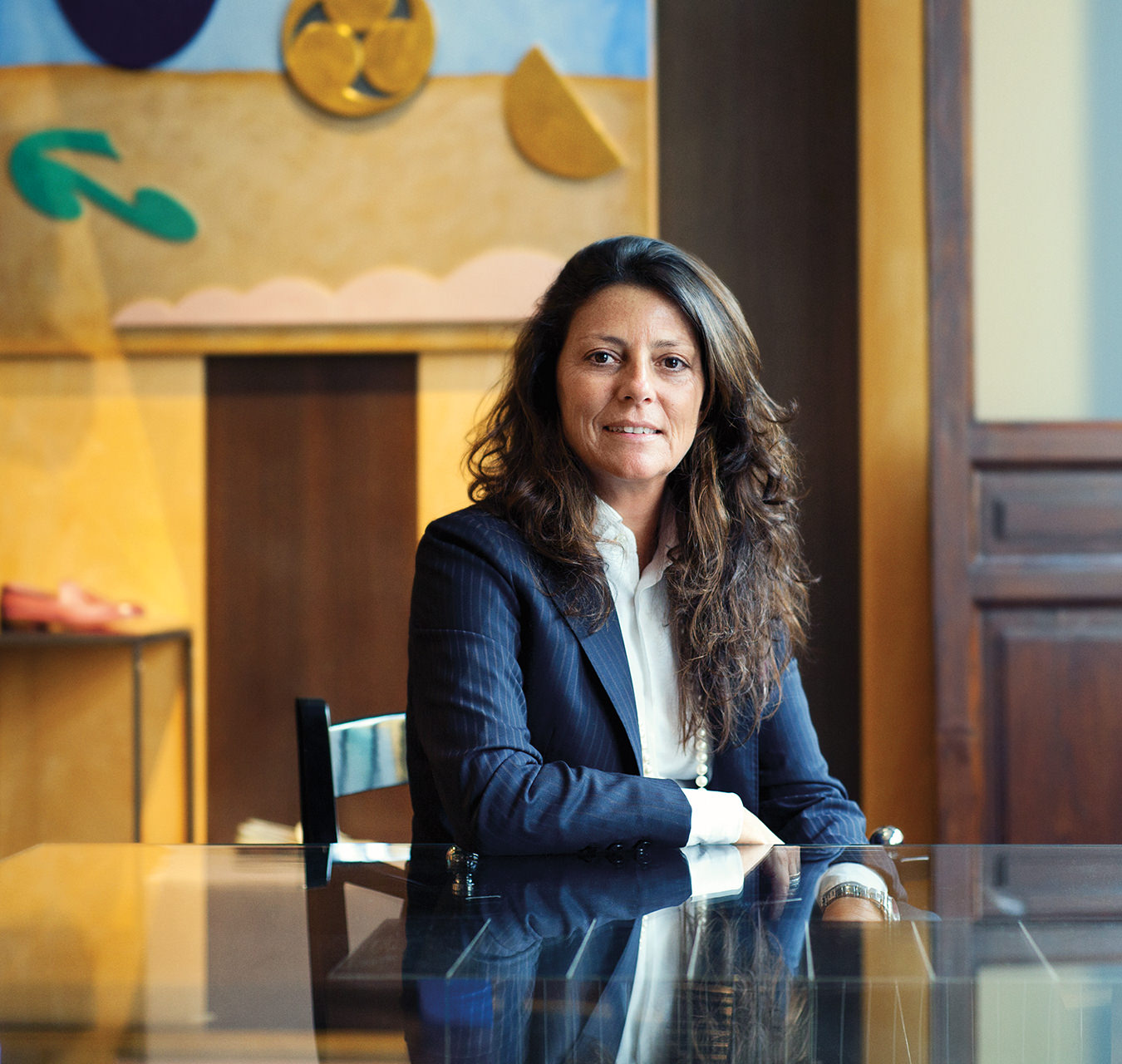
Maria Giovanna Paone
-

Palazzo Kiton in Milan.
-
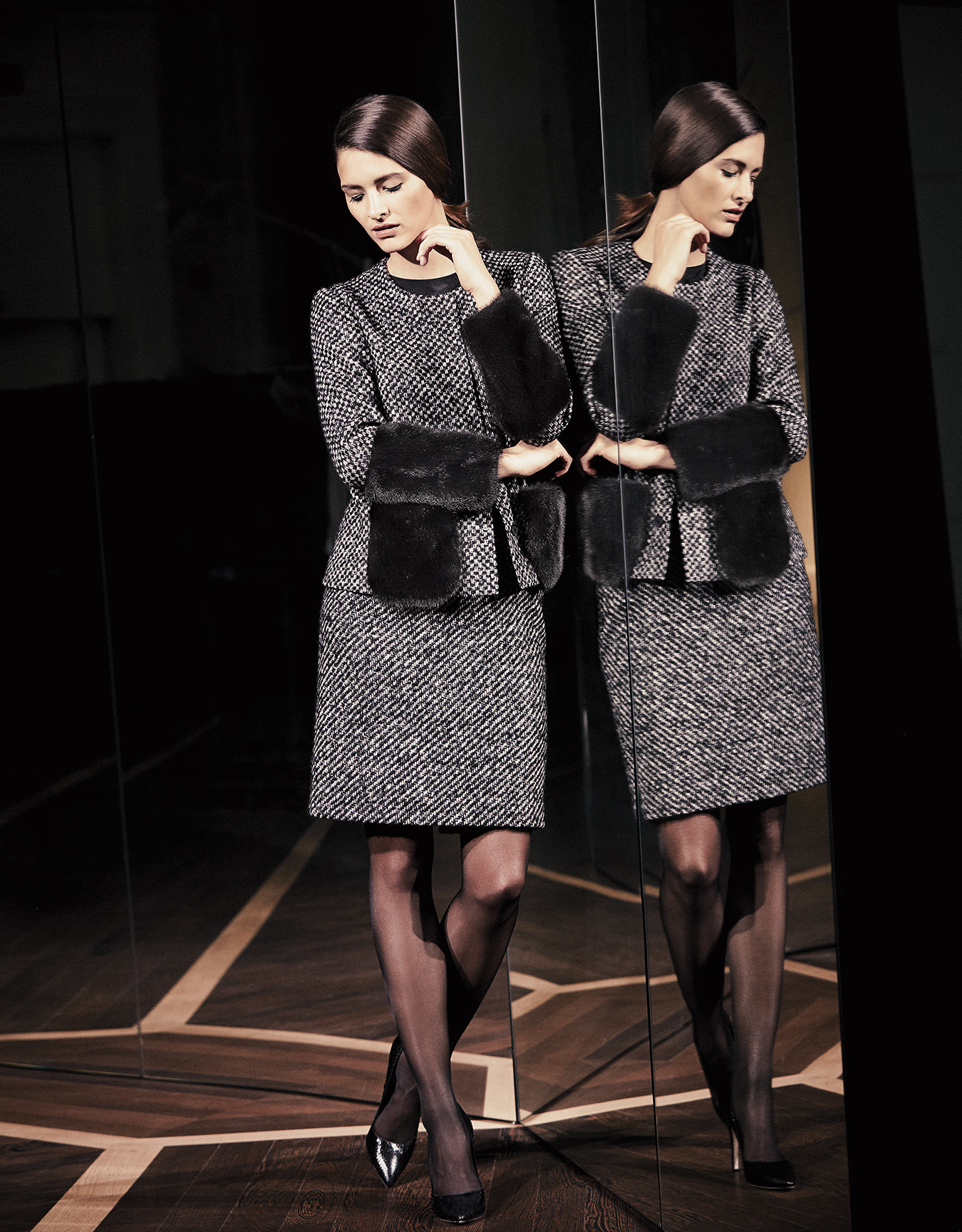
Kiton’s fall/winter 2014 womenswear collection.
-

-
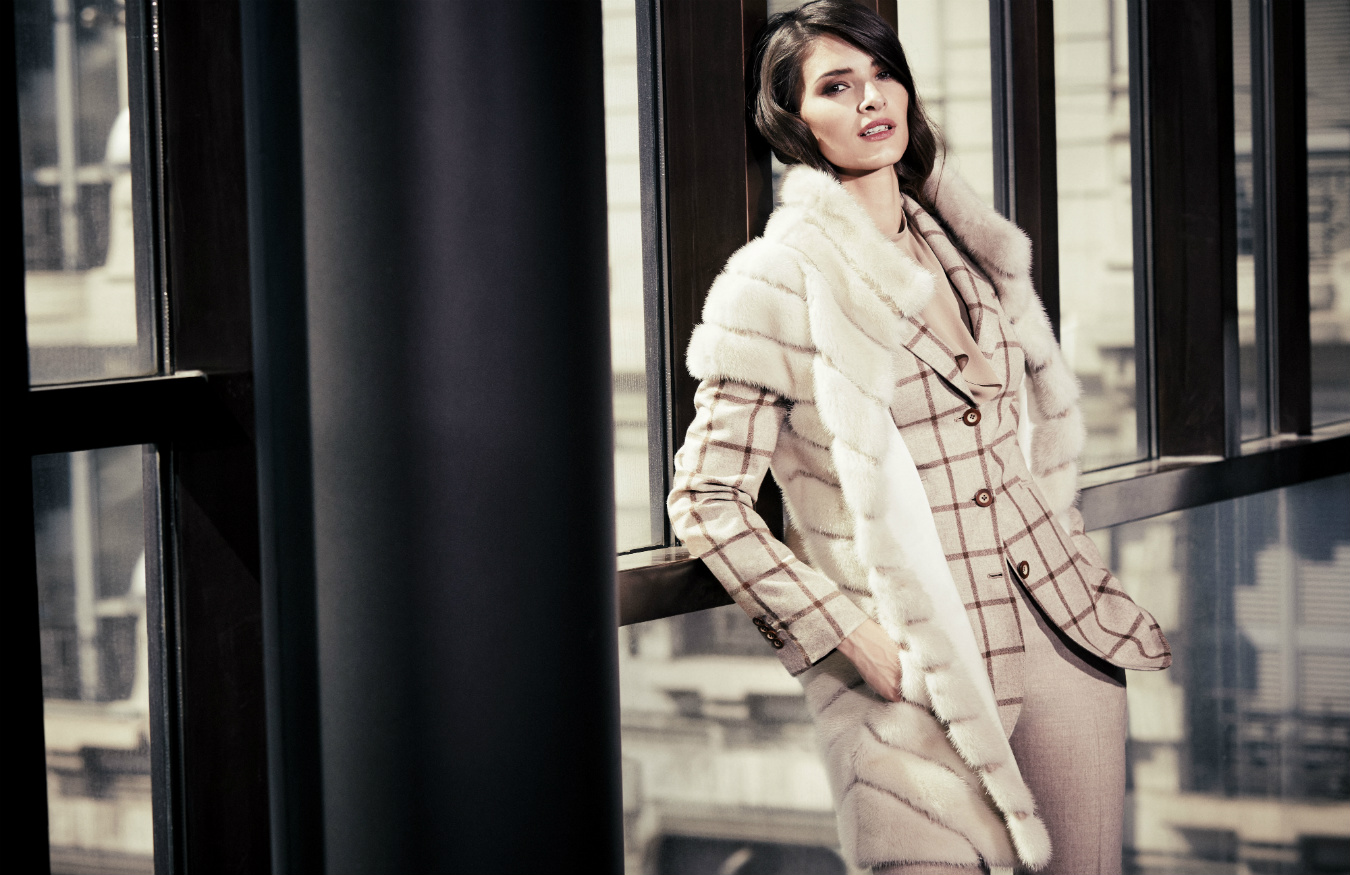
-
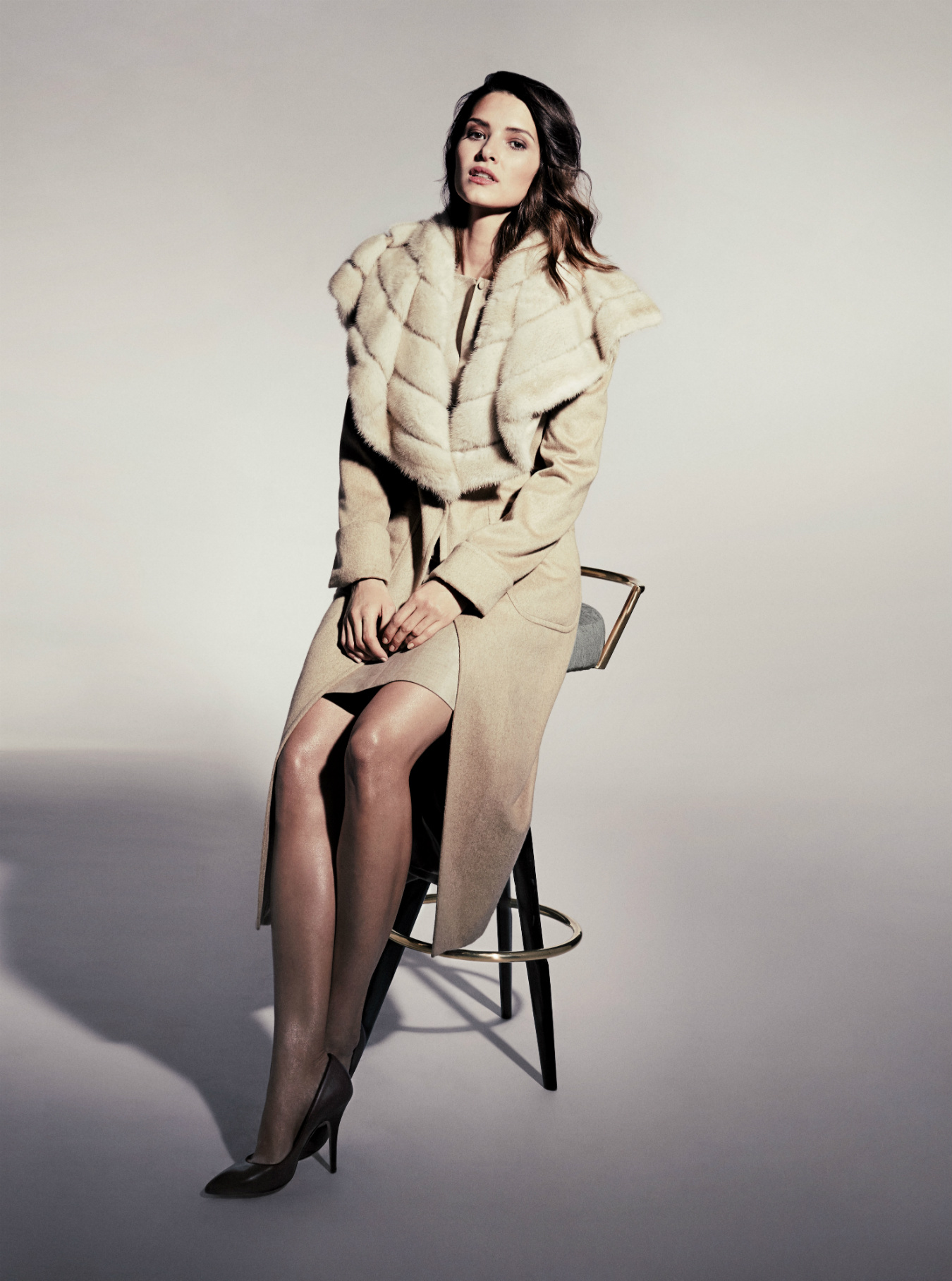
-

-
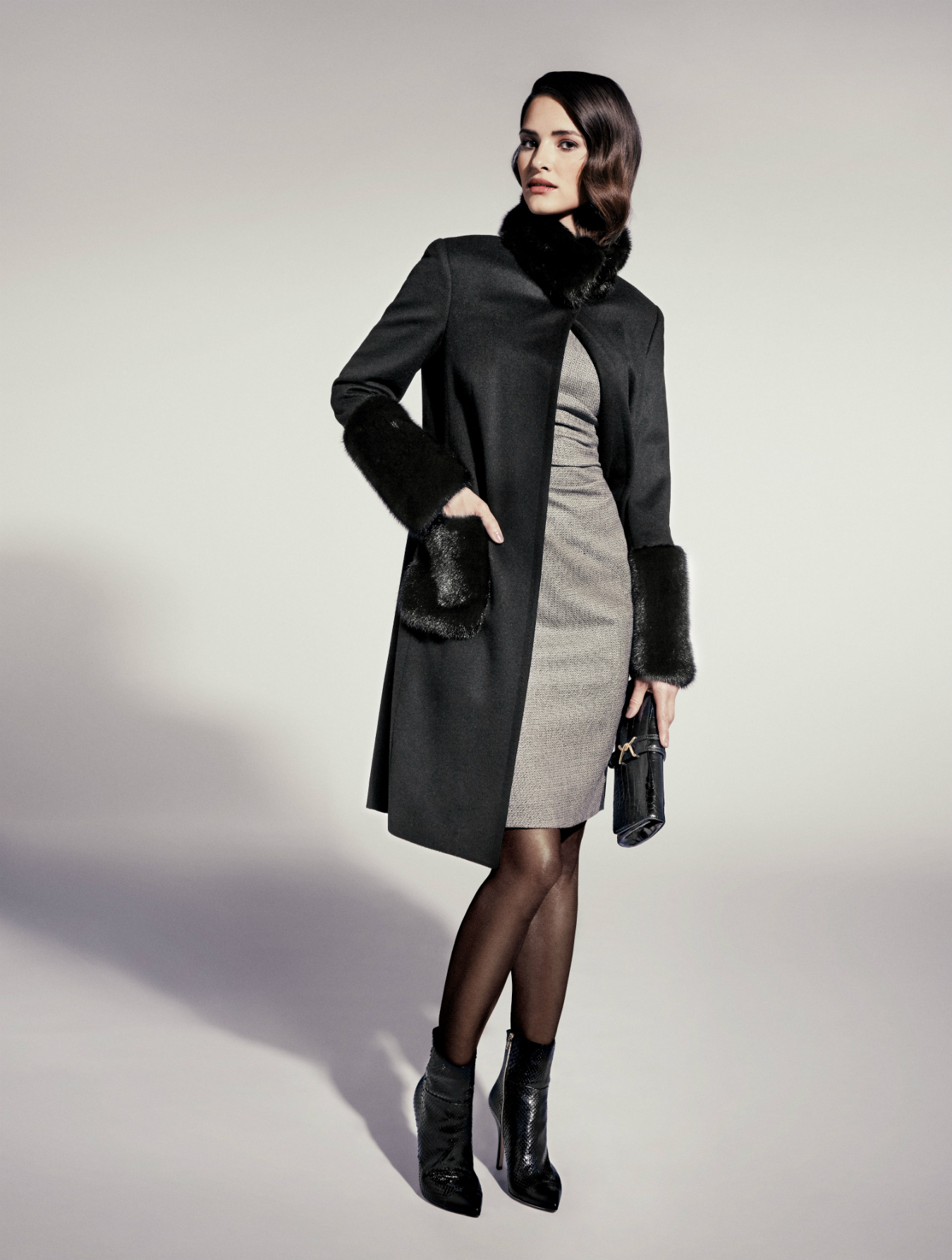
-
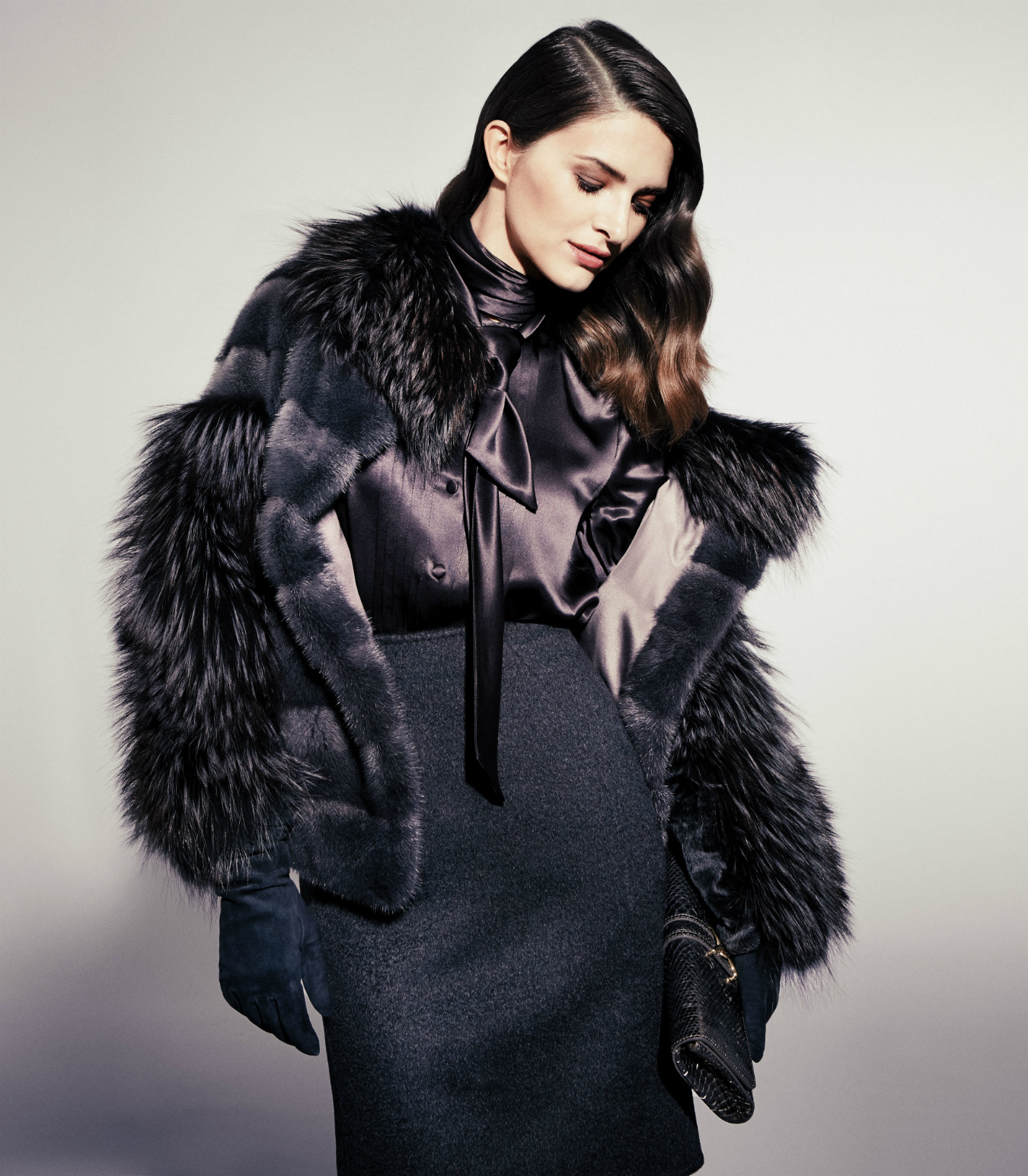
-
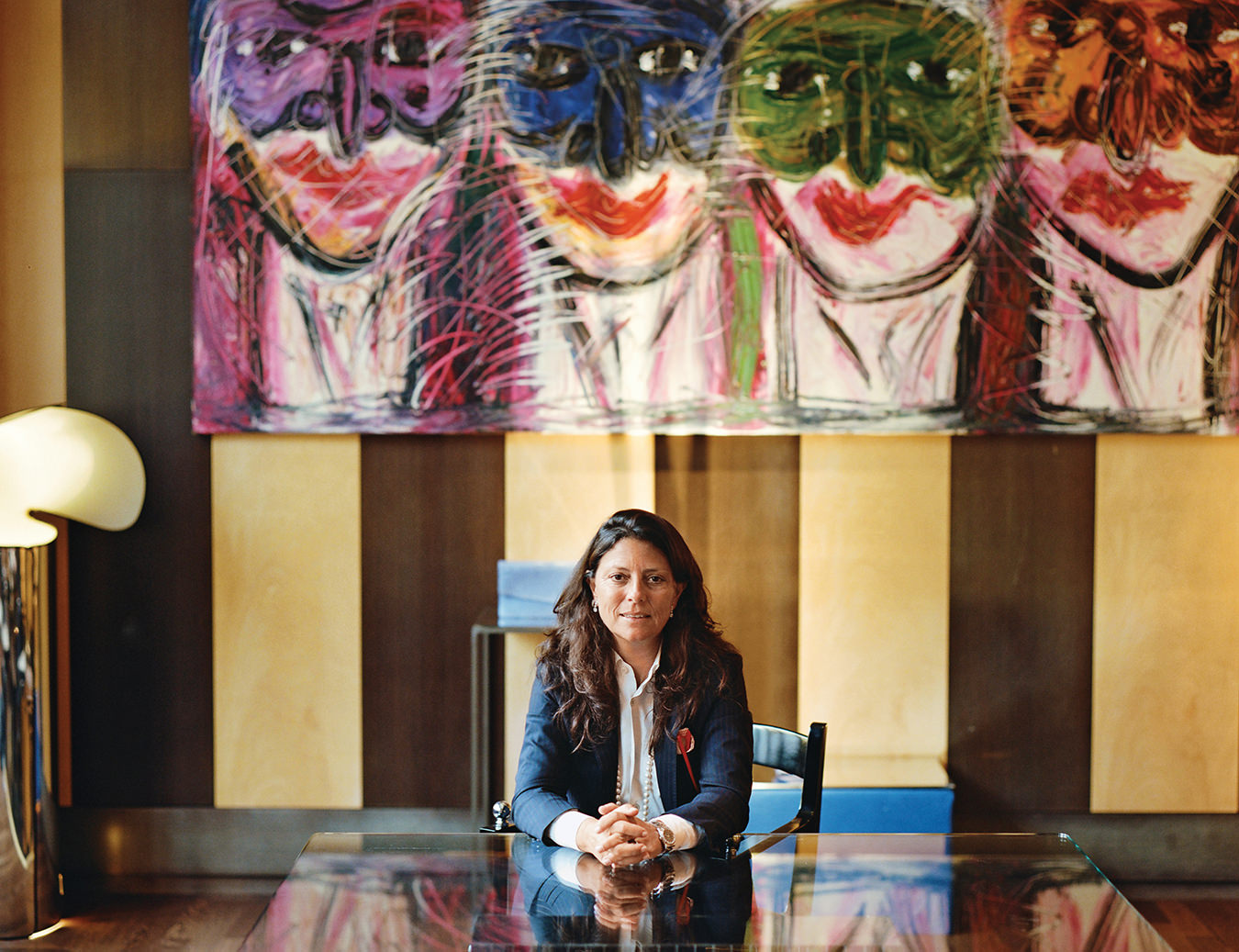
Maria Giovanna Paone
Kiton’s Maria Giovanna Paone
Fashioned for her.
The Naples-based brand Kiton, named after chitone, a ceremonial garment worn by ancient Greek aristocracy, is known the world over for its exquisitely constructed menswear. Now, Maria Giovanna Paone is aiming to garner similar recognition for its women’s division, of which she is creative director, with the help of the label’s not-so-secret weapon: Neapolitan sartorial superiority.
Paone, daughter of the company’s founder, Ciro Paone, channels stylish sophistication in an ever-classic Kiton pantsuit and emanates a certain warmth that puts you immediately at ease, especially once she has casually dispensed an invitation to the family’s vacation home in Capri. This nonchalance, however, quickly gives way to a cool confidence as she launches into her vision for the department that she took the reins of about two years ago. The brand has been producing womenswear for a decade, but Paone is capitalizing on her past experience in menswear to continue the development of its counterpart in a similar key, with the same attention to quality and detail that has made Kiton the world-renowned company it is today.
Unsurprisingly, the women’s collection revolves around the sartorial jacket, which can retail for upward of $4,000 (U.S), although the vast selection comprises sophisticated pieces for just about any occasion: classics for the office, casual basics for everyday wear or seaside getaways, sportier looks, and even formal wear. Something is surely resonating as womenswear saw 20 per cent of the brand’s total growth in 2013, with the best performing markets being Japan, Korea, Russia, Canada, and the U.S. “I am satisfied, but not happy just yet,” says Paone, indicating her hopes that Kiton’s iconic status will one day extend to womenswear as well. Last year saw the launch of women’s accessories, which started, as with the ready-to-wear, from a masculine point of view. The brand began to test the waters in 2004, taking classic men’s shoes such as oxfords and loafers and giving them a feminine twist, and while the current fully developed line includes several of those, the aesthetic has taken on a more decisive, ladylike identity. The versatile two- and three-toned sandals and pointy-toed pumps, and their jewel-embellished models, as well as sneakers (all made by hand, naturally) are rounded out by an array of belts, wallets, and bags—“the element that distinguishes itself most in an outfit,” according to Paone.
In general, says Paone, the realm of high-end tailoring has been somewhat male-dominated thus far; nowadays, she claims, more and more women are learning to appreciate that same level of quality for their own wardrobes. “Not only do they have the same careers and lifestyles as men, they sometimes have the equally important responsibilities of being a mother and wife—and Kiton is able to convey professionalism in everything a woman does.” Paone often keeps her own multi-tasking life in mind when contemplating new pieces. She believes clothes play a fundamental role in a woman’s life, but not just for the sake of appearance. “The Kiton product is one of the few things that makes you feel great on the inside, comfortable and at ease, but always polished. You are demonstrating your character, not just a piece of clothing.”
Character, in this case, takes the form of fine craftsmanship and a level of detail in each piece that is astounding and often invisible. The creation of a single women’s jacket comprises 30 different steps, passing from the hands of one tailor to another. “Much of the time we put into the clothing doesn’t get seen in the end,” explains Paone with an air of resignation, as if to say, it goes with the territory. She describes today’s Neapolitan signora as a woman who has no choice but to be modern. “Daily life there is not easy,” she says, “which is why women have to be simple, grounded, and low profile.” No frills, she adds—the city is infamous for street muggings—and indeed, much of Kiton’s value lies concealed within the garments themselves. What may seem like a striped print is actually individual pieces of fabric sewn together, and rarely is an under-collar or pocket flap not lined with some contrasting and equally exceptional textile. A cashmere jacket is unbelievably soft to the touch and barely registers from its lightness. This is why, according to Paone, a runway show simply would not do justice to the brand’s highly elaborate creations. “You really have to wear Kiton to understand just how high the quality is,” she says. “But never say never.”
Kiton, by all means, is a family affair, somewhat of a hallmark of the Italian fashion world. “We’re not so much designers as lovers of quality,” says Maria Giovanna Paone.
While Kiton rightly sticks to its tried-and-true traditions, Paone says they are constantly on a mission to improve quality, especially when it comes to fabrics; clients have come to expect as much over the years, thus the company’s current motto of Il meglio del meglio più uno (“the best of the best plus one”). Since the very beginning, textiles have been a cornerstone of the Kiton offering. Paone’s father comes from a five-generation history of fabric dealers, so one could say it is literally in the family’s DNA. For this season, she is particularly enthusiastic about a 14-micron gabardine that was used for a classic blazer in a bold petrol blue as well as a silk, wool, and cashmere blend that “adds substance without flattening it,” she explains. Today, there are 10 people dedicated exclusively to fabric selection, and in 2010 the company acquired a controlling stake in prestigious Biella-based textile mill Carlo Barbera, ensuring a level of quality that meets Kiton’s perpetually rising standards.
The conception of each collection begins with Paone’s cousin and Kiton CEO, Antonio De Matteis, who also heads up the menswear division, choosing the colour palette for the entire brand. Some of the men’s fabrics are often commandeered for the women’s line, echoing one of Paone’s earliest memories as a child: her mother taking samples that her father brought home from business trips and having her seamstress put together completely unique creations with them for herself. “These are the scenes I really loved,” recalls Paone. “This very Neapolitan seamstress, who, paradoxically, was not really elegant at all, but could make the most beautiful and perfect things and know exactly which styles to recommend, styles that would let you be yourself.”
Despite steep competition in the arena, this same blend of high-level tailoring and extremely personalized service that lies at Kiton’s foundation is what keeps its clientele coming back season after season. “We’re not so much designers as lovers of quality,” says Paone, who works on the collections with a style director and design team. The fundamentals of the collection remain relatively consistent, undergoing trend-driven edits in elements like shoulder shapes, lengths, and waists, and at trunk shows clients are offered the possibility of personalizing a garment with their choice of buttons or a different lining, among other things—a level of customized service that can rarely be found elsewhere.
These days, international clients and buyers are received at Palazzo Kiton, the company’s recently renovated Milan headquarters, located in the city’s artsy district, Brera. The sprawling, open space that once belonged to the late designer Gianfranco Ferré is now a microcosm of art and decor, featuring pieces from Ciro Paone’s personal collection, which includes works by contemporary Italian artists like Mimmo Paladino, Lucio Del Pezzo, Manlio Giarrizzo, and Lello Esposito, among others. The historic three-storey building serves as a glossy backdrop to a constant thrum of simultaneous meetings, and, of course, to the brand’s collections. The first phase of restoration, in collaboration with architect Franco Raggi, was completed and inaugurated during men’s fashion week this past January, and the final phase, which will see the opening of an atelier and bistro on the ground floor, is set to conclude at the beginning of next year, just in time for Expo Milano 2015. While the location is bustling and houses an interesting blend of styles ranging from art deco to Louis Quinze, it is in no way overdone. “The building was already beautiful in itself, and we didn’t want to add too many things. I don’t like to fill a space for the sake of filling it,” says Paone, who has a personal passion for interior decorating.
Milan may house Kiton’s new and shiny hub for international dealings, but Naples—or more precisely, Arzano, just on the outskirts—is where it all began and where the company’s main headquarters still reside today. Despite its deeply entrenched political and economic woes, Naples, which has the fourth-largest urban economy in Italy, is still a crown jewel when it comes to food, art, culture, and style. The artisans of this city have succeeded in distinguishing themselves from the already-beloved Made in Italy concept, and it comes as no surprise that a locale in which names like Rubinacci, Attolini, and Marinella all call themselves neighbours serves as Kiton’s very own philosopher’s stone—a constant reminder of the need to strive for absolute perfection. In 2001, the company opened a tailoring school there to safeguard and ensure a future for its know-how and sartorial secrets. Around 20 students, aged 16 to 21, are taken into the program every two years and many go on to work in Kiton’s factory.
Naples is also where Paone was born and raised. After a predominantly classical education there, she finished up her studies in Brighton, England, before joining Kiton, accumulating experiences in the fabric warehouses, production, and administration departments. At a certain point, she began to accompany her father on business trips to select fabrics, present collections, and, eventually, to work in sales. She says the best advice her father ever imparted was to not speak—at least in the beginning. Only by listening, he used to tell her, could she ever one day have her own say. “He always taught us to have the utmost respect for others,” she says, adding that growing up in such a tight-knit family taught her to work as part of a group and gave her an important sense of morality. Kiton, by all means, is a family affair, somewhat of a hallmark of the Italian fashion world. Today, Paone works alongside a number of family members, including the aforementioned De Matteis, as well as the president of U.S. operations, Antonio Paone (another cousin), not to mention the bevy of male relatives to be found among the pages of each season’s look book.
Paone’s vision for the future of Kiton womenswear revolves around the evolution of the female shopper: a dynamic woman who wants to build her wardrobe rather than continually replace the items in it. She sees the development of a woman’s clothing collection as a long and constantly improving narrative, though in an arena where fast fashion and ever-changing trends tend to prevail, it can be a hard pitch. “You really have to know how to sell womenswear,” explains Paone, “especially when your salespeople are used to working with men’s clothing.” However, Paone is optimistic on the matter. She is entirely confident that women will come around to her philosophy of slow fashion. “When a client experiences more and more satisfaction each time she puts on a garment—a garment that becomes more beautiful with time—that is my idea of total success.”






